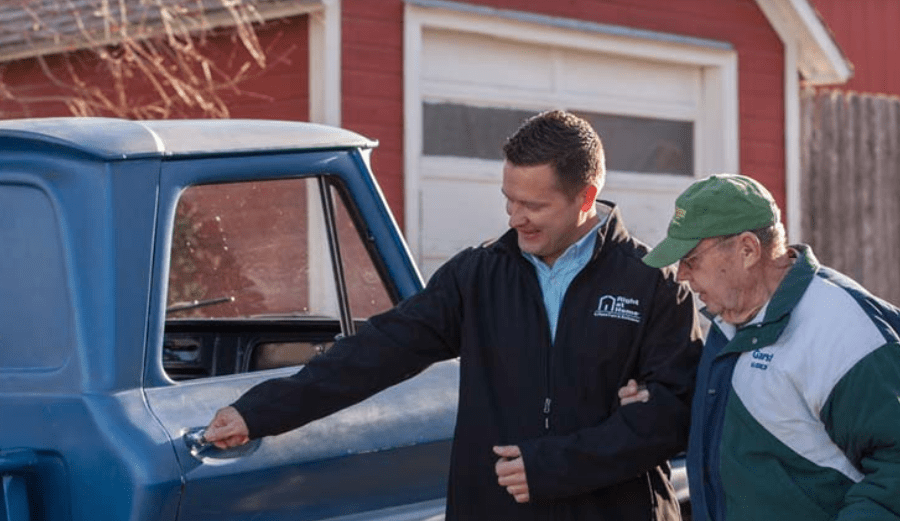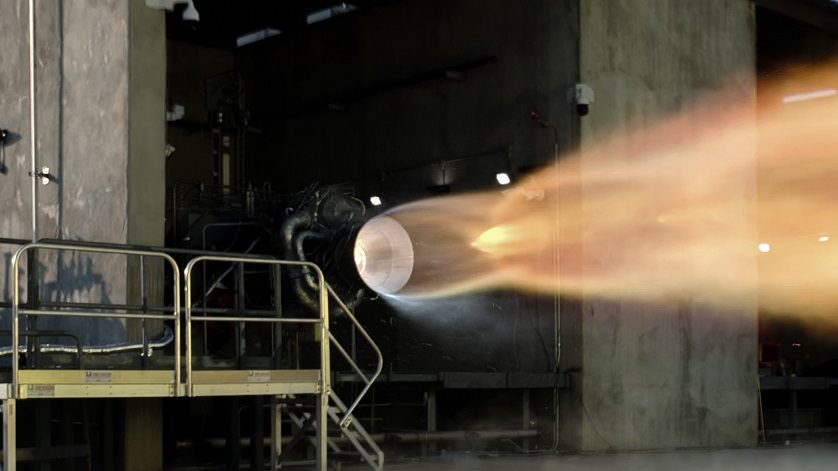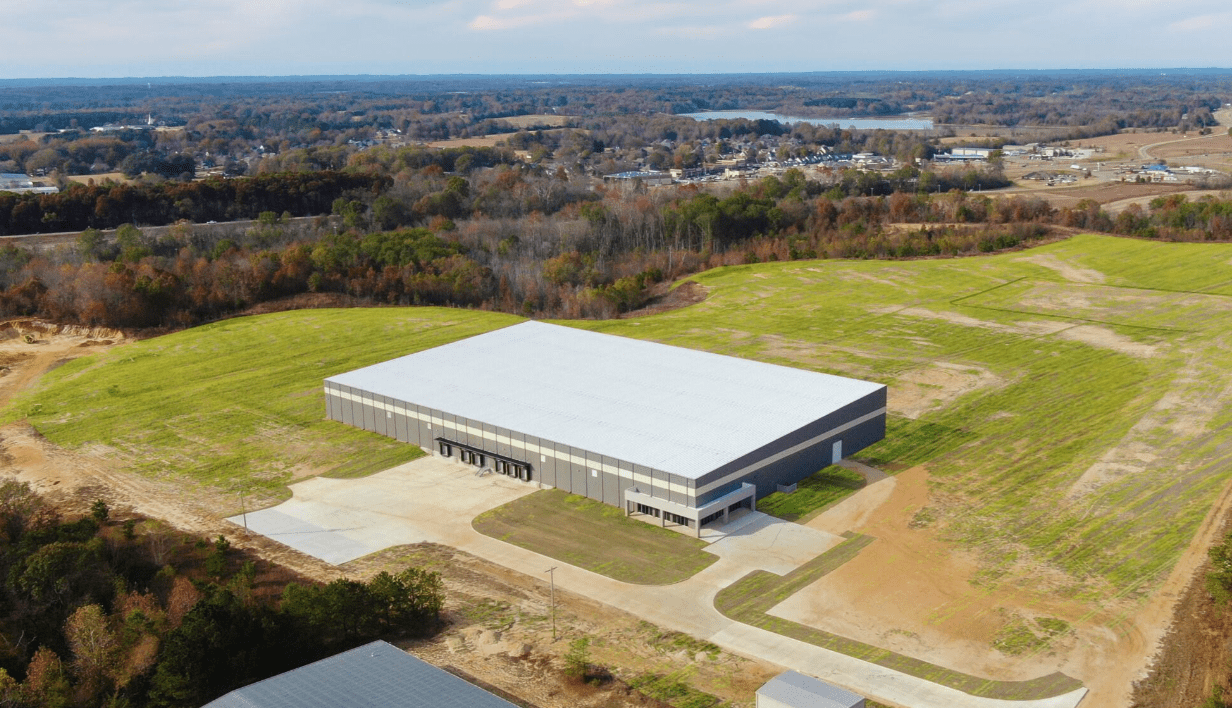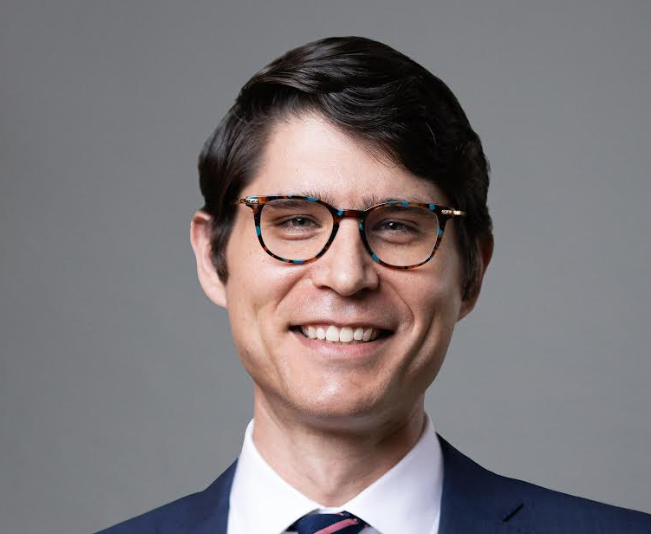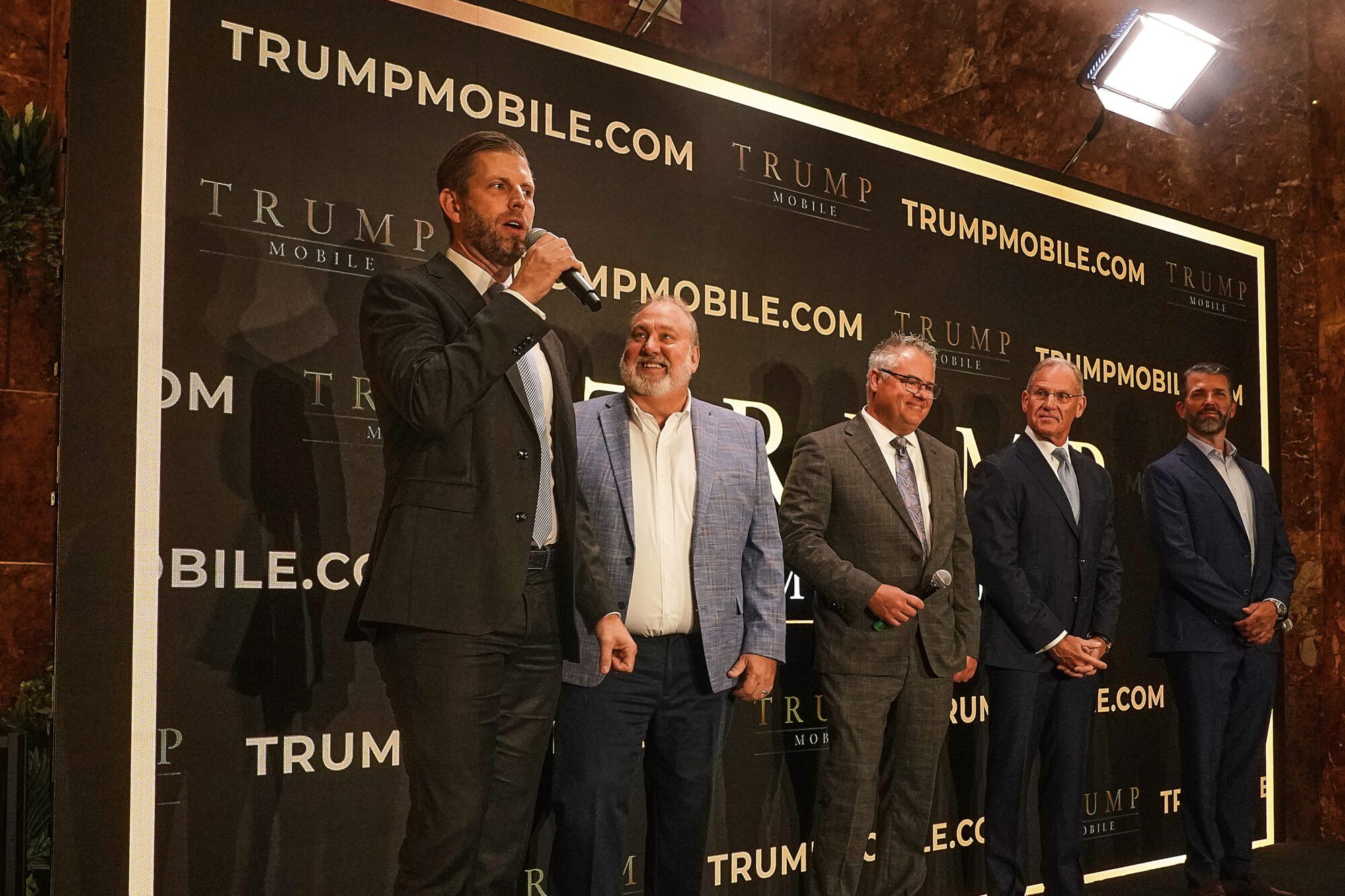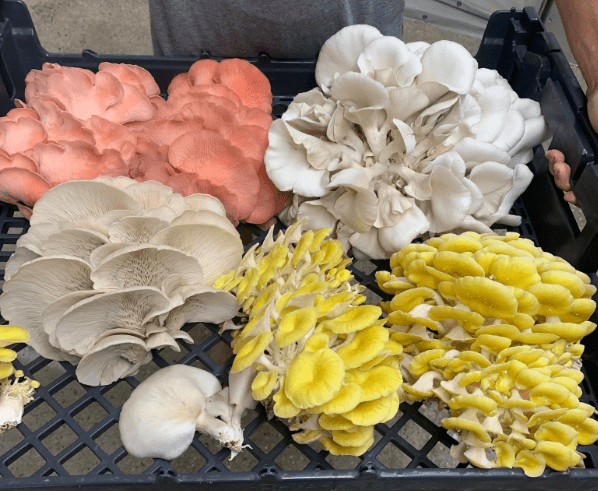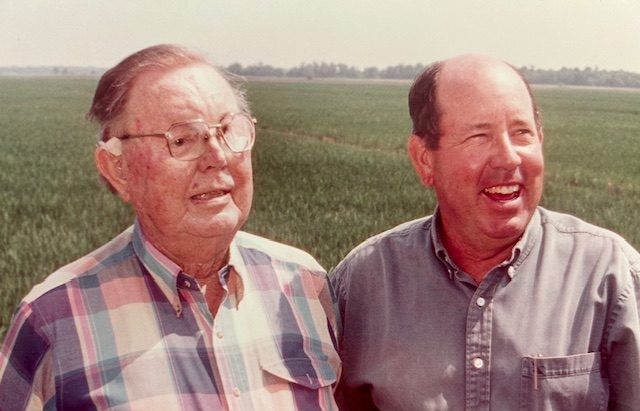
- The Myers’ family farm’s rice crops traverse Mississippi’s first wind farm.
Fifteen years ago, Abbott Myers and his son, Ransom, began mulling ways to diversify their farm income on 7,500 acres in tiny Dundee (population: 73).
“We wanted to maximize our production return, so we looked at several different options,” said Myers, 73. “We didn’t like solar. We’d been looking at wind for well over a decade. If you look back 10, 15 years ago, there was no interest in wind in the Delta. John Deere financed wind turbines in Texas and some in the Midwest, but they wouldn’t even talk to you about financing one here.”
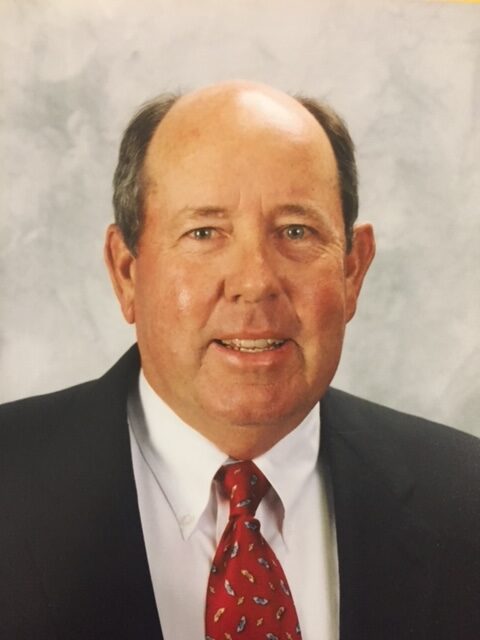
Myers, former board chairman of Mississippi Land Bank, had friends through credit associations who built wind farms in Texas.
“That’s what got me interested,” he said. “One friend said, ‘Shucks, I can build them myself,’ and he did. They’re expensive and I didn’t want to build them myself. But we did studies for years with meteorological towers, LIDAR radar, and the wind.”
Myers investigated four or five wind turbine companies before finding Vestas, a renewable energy partner of sustainable energy solutions.
“They have the best turbines on the market,” he said. “They asked me, do we have enough wind at 700 feet? We did. After they did all the groundwork, Vestas turned around and sold to a production company (AES) to develop it.”
Meanwhile, Amazon had been looking at Mississippi as a site for its planned two data center campuses and was also seeking ways to meet its goal to power operations with 100 percent renewable energy by 2025. The result: Delta Wind Farm, the state’s first utility-scale wind farm, on 14,000 acres belonging to Myers and other farmers.
The Myers Farm Story
Every year, the Myers produce approximately 2,000 acres of rice, and 600 to 800 acres of corn, depending on the price of corn. The remainder of the acreage is farmed in “poverty pots,” better known as soybeans.
“We’ve been through what I call the golden age of row crop agriculture,” said Myers, 2013 Mississippi Rice Farmer of the Year. “It’s been wonderful. But lately, things are turning down and it can bottom out like it did in the ‘80s.”
A third–generation farmer, Myers was an aerospace engineering major at Mississippi State University (MSU) when he was called home in the summer of 1969 to take over row-crop farming operations while his dad, Ransom Sr., had eye surgery for a detached retina. Post-op, Ransom Sr. had to lie flat on his back for several weeks.
“I never wanted to farm, and I made the biggest mess you’ve ever seen,” said Myers, whose father was an MSU engineering graduate. “Dad had the crop planted, and you had to plow back then every week. You had to cultivate every week. You had to spray every week. There was a lot going on! And I learned there’s an art to handling labor. We had a lot of labor and a lot of tractors back then. We had a lot of homemade equipment. We had to weld and make tank racks. We couldn’t just buy them easily in those days.”
Myers admittedly didn’t know how to handle money back then.
“What’s FICA? I’d go home at night and ask my father, and he’d say, ‘Oh yeah, you got to make sure you pay that.’”
With some experience under his belt, Myers learned he enjoyed planning and managing “and being boss,” he joked.
Before Myers returned to MSU, where he switched his major to agricultural engineering, Mississippi Land Bank loaned him money to buy 280 acres of farmland.
“They were crazy enough to do that, and I’ve been borrowing money from them ever since,” he said, with a laugh. “I thought I’d never pay it back.”
After graduating from MSU in 1972, Myers returned to the family farm and raised 33 crops with his dad. They started with 60 acres of rice in 1979 and harvested 2,250 acres last year.
“We had some not very productive clay soil,” he recalled. “We tried to raise cotton on it, but it wasn’t suited for cotton. Once they developed rice, we were able to plant rice. We started land forming. We didn’t fool with crop insurance. We took that money and bought wells and self-insured. Now we’re 78 percent irrigated on the whole farm.”
Continuing the Myers Legacy
Together, Myers and his dad continually tweaked farming operations. For example, Ransom Sr. had been planting on 38-inch rows, but the crop would never close up, so he shifted to 30-inch rows in 1972.
One of Myers’s lowest points occurred when his dad died in 2003.
“He never retired; he passed away from cancer,” lamented Myers. “He was deaf from the war and had lost an eye to an accident. Even though he went blind, he’d ride in the truck with me every day.”
In 2005, his brother, Randy, a well-known PhD marine biologist in Halifax, Nova Scotia, Canada, died from an aggressive brain tumor.
“Right before he died, I went up to see him and he couldn’t communicate,” said Myers. “It took me about eight hours to figure out that he wanted me to teach his daughter how to drive. He was elated when he finally got it across to me.” (Myers honored his brother’s wish.)
Life on the Farm
Myers has been working with his son for 24 crops. His wife of 53 years, Sheryl, and his daughter-in-law, Caroline, handle bookkeeping duties. His daughter, Kathy Bourne, pitches in. A retired attorney, she is married to Russ Bourne of Sumner, and is a full-time mother of two sons, Mantz, 14, and Emmette, 12.
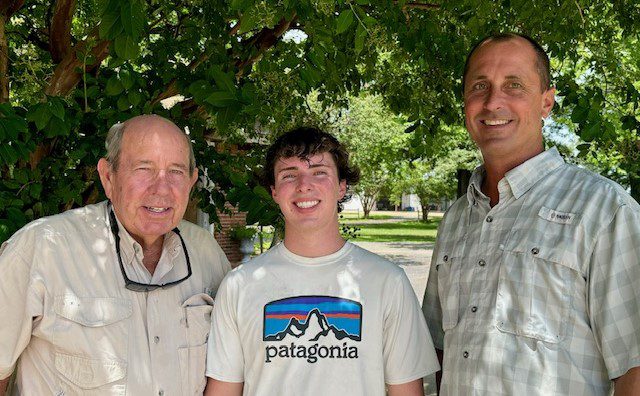
It remains to be seen if Ransom’s son, Ram, will represent the fifth generation of the family to farm on Myers’ land. Ram is a sophomore at Ole Miss, majoring in business management, and involved with the Ole Miss Haley Barbour Center for Manufacturing Excellence (CME). His favorite granddaughter, Lucille, a senior in high school, recently informed Myers she’s “going over to that school in Oxford,” he joked, but she redeemed herself when she mentioned studying engineering. “That surprised me,” he said.
Myers’ grandsons work on the farm in the summertime.
“They’ll have to decide for themselves whether they go into farming, but they need a college degree as an insurance policy,” said Myers. “If you want to farm, you’ll know it because when everybody else is going fishing or to a baseball game in the spring, you’ve got to be planting. And when everybody’s going to football games in the fall, you’ve got to be harvesting.”
Myers has eight employees on the farm, “probably the best crew I’ve had in a long time.”
His take: “If I mess up, it’s my fault. If I don’t make a crop, it’s my fault. If I buy the wrong piece of equipment, there’s nobody to blame but myself. If I make a mistake on chemicals, it’s nobody’s fault but my own.”
Even so, Myers admitted he’s challenged with “moving out of the way and letting my son be in complete control.”
“But it will happen,” he said, with a wink.
#####

